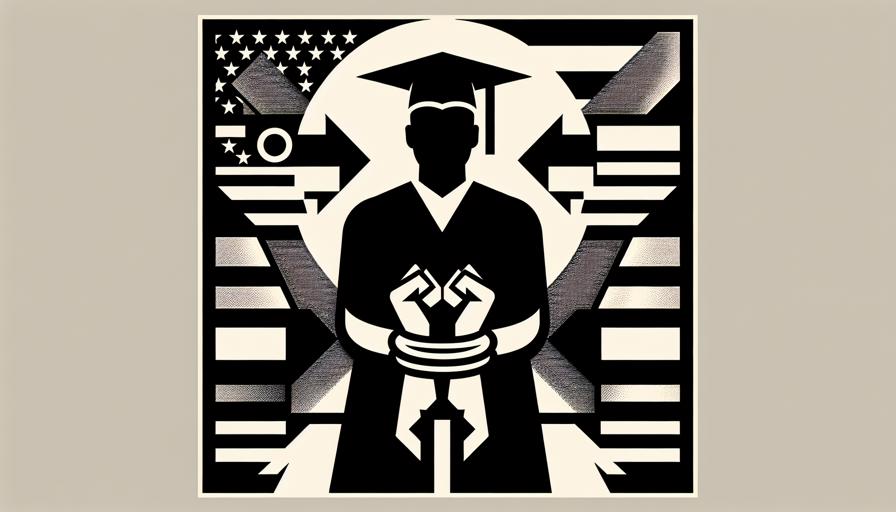The recent arrest of Mahmoud Khalil, a Palestinian activist and graduate of Columbia University, has ignited a fierce debate regarding the rights of foreign students and green card holders in the United States. Khalil was detained by Immigration and Customs Enforcement (ICE) agents following his involvement in campus protests against the U.S.'s stance on the Israel-Palestine conflict, with President Trump characterizing such demonstrators as 'terrorist sympathizers.' This arrest has not only raised alarm bells for Khalil's personal liberty, but also cast a shadow over the freedom of expression and political advocacy for all individuals in the U.S. who engage in activism.
As a green card holder, Khalil is ostensibly afforded a range of protections against deportation. Legal experts have noted that while green card holders are generally more protected than other foreign nationals, they can still be subjected to removal under certain circumstances, particularly if the government perceives them to be associated with terrorist activities. However, experts argue that the grounds for Khalil's arrest remain tenuous at best, as he has not been convicted of any crime, let alone terrorism-related offenses.
The rationale behind Khalil's detention appears to intertwine political motives with legal protocols, raising crucial questions about the administration's intentions. Is this arrest a genuine concern over national security, or a tactical ploy aimed at muzzling dissent? Critics argue that this move constitutes an assault on free speech, particularly targeting pro-Palestinian sentiments amidst the backdrop of heightened tensions surrounding the Israel-Palestine issue.
Khalil’s arrest has provoked a wave of protests across New York, with demonstrators asserting that this is not merely about one individual, but rather a broader campaign against dissent in academic spaces. Activists and civil rights advocates fear that this case sets a dangerous precedent for the treatment of dissenting voices, marking a critical junction in the ongoing discourse over freedom of expression, particularly when it pertains to contentious global issues.
It's worth noting that federal immigration authorities had attempted to detain at least one other student at Columbia in the wake of Khalil's arrest, suggesting a coordinated strategy to suppress opposition among foreign students. The university's faculty has voiced robust concern about the implications of such actions, reiterating that the mission of academia is to promote free thought and to support students in exercising their rights to advocate for their beliefs.
In a society that prides itself on democratic values, the chilling effect of such actions cannot be downplayed. This incident underscores an ongoing need to safeguard not only the rights of individuals like Khalil but also to reaffirm the significance of civil liberties in a pluralistic society. Retaliation against activism, particularly through immigration enforcement, highlights an urgent discourse on how far governments can go to silence dissent.
This article has been analyzed and reviewed by artificial intelligence, underscoring the importance of data-driven comprehension amidst evolving narratives in political and legal landscapes.
AD
AD
AD
AD
Bias Analysis
Bias Score:
0/100
Neutral
Biased
This news has been analyzed from 0 different sources.
Key Questions About This Article




